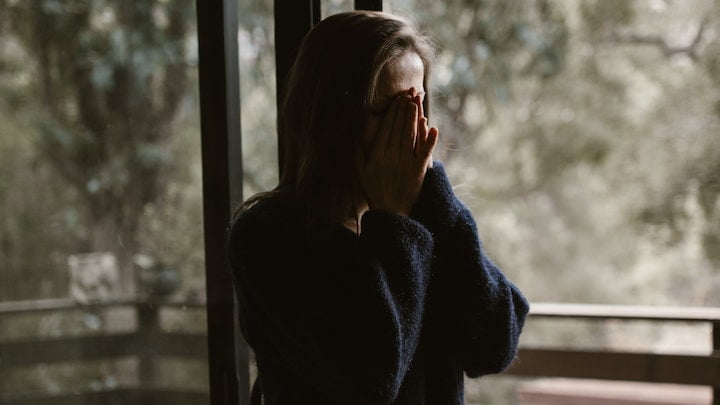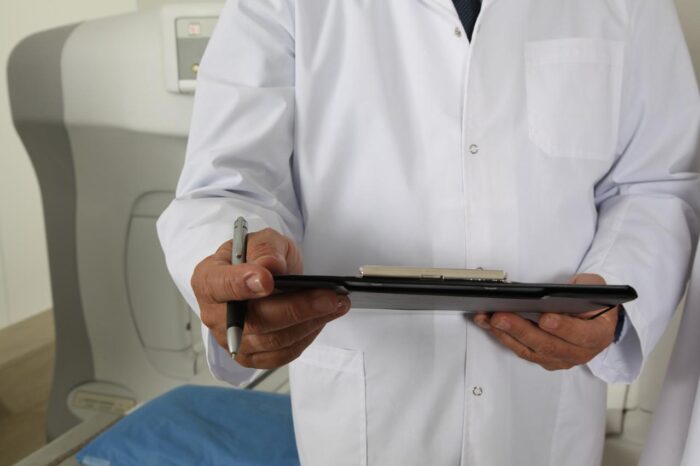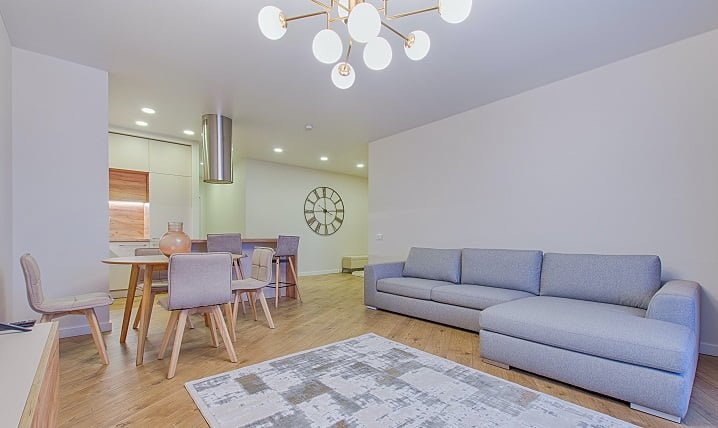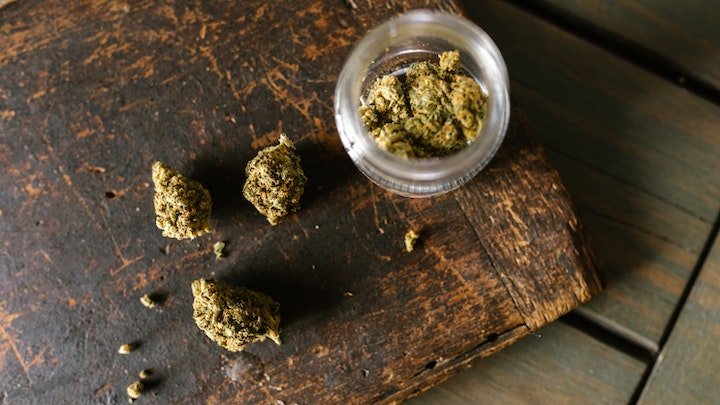Drug & Alcohol Rehab Brighton & Near Brighton
Quick Links for help with addiction in Brighton and near Brighton
- Dual Diagnosis in a Drug and Alcohol Rehab in Brighton
- The Benefits Of Residential Rehab In Brighton
- How Much Does Rehab Cost In Brighton?
- Rehab For Cocaine In Brighton
- Rehab For Heroin In Brighton
- Rehab For Cannabis In Brighton
- The Types Of Therapies On Offer In Brighton Rehabs
Between 2018 and 2019 [1], 120,552 adults were reported to be dependent on alcohol while living with children in Brighton.
A report in 2013 [2] found that 36% of adults in the area have used illegal drugs, totalling 60,255.
The year before this, only 1,442 individuals were reported to have accessed addiction treatment.
This lack of support is extremely concerning considering how dangerous drug and alcohol addiction can be. In fact, those who are hospitalised from alcohol addiction will on average die 24-28 years earlier [3] than the general population,
Drug and alcohol rehab Brighton can help individuals begin the recovery process [4] and find freedom from a wide number of addictions.
These include:
- Alcohol addiction and binge drinking
- Benzodiazepine addiction
- Buprenorphine addiction
- Cannabis use disorder
- Cocaine addiction
- Crack cocaine dependency
- Codependency
- Heroin addiction
- Ketamine addiction
- Opioid use disorder
- Behavioural addictions like gambling addiction
Below, we provide some statistics about alcohol and drug use in Brighton or near Brighton: [1]
| Drug and Alcohol Statistics in Brighton | Data |
| Adults who were reported to be dependent on alcohol while living with children in Brighton (2018-2019) | 120,552 |
| Number who had used illegal drugs in 2013 in Brighton | 60,255 |
| Individuals who were reported to have accessed addiction treatment in 2012 in Brighton | 1,442 |
| Estimated costs to Brighton & Hove for alcohol misuse | £107 million per year |
The Disease Model Of Addiction

A common aspect of addiction that many people mistakenly believe is that it develops as a result of an individual’s immoral behaviour and decisions.
This paints those who suffer as bad people when in reality they are victims of their brain chemistry and other factors that are out of their control.
To help highlight this latter explanation we have the disease model of addiction.
It presents addictive behaviours as the symptoms of the influence that genetics and socialisation can have, alongside influences such as the 4Ps of addiction (Parents, Partner, Past and Present) [5] and wider elements such as peer pressure [6].
As a result of all of these, certain individuals are therefore more at risk than others.
This model is very important for effective rehab in Brighton and near Brighton.
Not only does it acknowledge that addictions are fuelled by behavioural and biological triggers, it prevents individuals from being made to feel guilty for their situation and can help them recognise the existence of their addiction [7] when it might otherwise be difficult to face.
Dual Diagnosis in a Drug and Alcohol Rehab Brighton

When addiction develops, mental health can play an intrinsic role.
Any addiciton, from alcohol to heroin, can have a dangerous impact on mental health [8].
This is due largely to the significant impact addiction can have on the brain [9].
Conditions like depression, anxiety, bipolar disorder, borderline personality disorder, eating disorders, obsessive-compulsive disorder, post-traumatic stress disorder (PTSD) and schizophrenia can lead to the development of substance abuse problems, and they can also arise as symptoms of being intoxicated or experiencing withdrawal.
In particular, Borderline Personality Disorder and Antisocial Personality Disorder are both commonly linked with substance use disorder [10].
When this connection is identified throughout the rehab process in Brighton or near Brighton, it is known as dual diagnosis.
Dual diagnosis is necessary because it informs both patients and treatment experts of the true origins of a condition.
A psychiatric assessment will be carried out by a psychiatrist in order to assess whether you need further psychiatric treatment.
If anxiety fuels addiction – a factor which is often associated with type one alcoholics [11] – therapy can use this to focus on triggers that prompt anxious feelings and tackle them directly.
The Focus On Abstinence
Drug and alcohol rehab in Brighton prioritises eliminating substance use altogether and encouraging individuals to practice abstinence.
This approach has several key advantages over harm reduction and consumption management which, although they can absolutely help individuals to curb their drinking and drug use [13], are rarely enough to fully overcome addiction.
Abstinence’s main benefit is that it is the most effective way to tackle addiction.
Although reducing substance use can have a wide range of positive health benefits [14], eliminating all substance use puts as much space between individuals and relapse as possible, allowing no chance for moderate consumption to get out of hand.

This approach also keeps individuals safe.
By keeping them completely apart from a drug, treatment prevents their physical and psychological health from being impacted by continued exposure to substance use.
Addiction can never be cured [16], but abstinence is a way to ensure that it stays well-managed for the rest of the individual’s life.
The Benefits Of Residential Drug & Alcohol Rehab Brighton

Image above: Outside a drug and alcohol rehab in Brighton
Addiction treatment can take many different forms [17], drawing from a wide range of methods to provide bespoke treatment based on each individual’s needs.
Treating addiction through residential drug and alcohol rehab in Brighton provides a different experience from outpatient services.
This experience offers several advantages, including:
- Around-the-clock supervision, ensuring that recovery does not pose a threat to physical and mental well-being.
- Immediate access to appropriate medications when drug or alcohol withdrawal symptoms (alcohol withdrawal syndrome) pose a threat to well-being or progress.
- A secluded recovery environment, untainted by outside distractions and temptations.
- Access to group therapy gives recovering individuals the opportunity to talk to and learn from one another.
Residential rehab can also provide expert support in the case of the many physical conditions that individuals can develop from addiction, particularly organ damage [18].
These include a wide range of serious ailments [19], such as:
- High blood pressure
- Heart disease
- Liver disease
- Stroke
- Cirrhosis [20]
With the right help given at the right time, it is even possible for damaged organs to heal entirely [21].
Private Rehab VS Council-Funded Rehab Treatment in or Near Brighton

Image above: Family therapy at a rehab in Brighton
The Benefits Of Private Rehab in Brighton
Private rehab offers an abundance of treatment options.
Detox and therapy are available for individuals to access at any time, and more complementary activities are also provided, including holistic and recreational therapies.
These programmes also look to optimise comfort for those going through treatment.
Personal accommodation and catering services are provided, ensuring an atmosphere of safety and security.
The Drawbacks Of Private Rehab in Brighton
In order to offer so much to patients, private rehabs ask for a high admission fee.
These can be in the range of tens of thousands of pounds, meaning they are widely unaffordable for the majority of people.
Facilities are also often located in remote places where there is enough space to accommodate a wide range of facilities and guarantee a sense of seclusion for recovering individuals.
This means that individuals must relocate to access private help.
The Benefits Of Council Rehab in Brighton
This funding covers the cost of assessments, treatments and aftercare, enabling full recovery.
The UK is full of rehab facilities, located in every county.
Individuals are, therefore, usually within commutable proximity to a suitable council-funded rehab programme.
The Drawbacks Of Council Rehab in Brighton
While fundamental to broadening access to treatment, council funding is hard to secure.
The process can be long and arduous, with individuals needing to consistently demonstrate that they are in need of and willing to comply with a rehab treatment programme.
Waiting lists are also an unfortunate symptom of this application process, which in the case of the NHS now sadly sees more than two thirds of all individuals waiting more than four weeks just for an intiial appointment [22].
During the time individuals are waiting for funding, their condition can worsen greatly.
Many of these issues are due to the chronic underfunding that the NHS has suffered in recent years, receiving far too few resources for what is needed [23].
Other organisations to consider in Brighton
Below is a list of other organisations that offer free support and advice for addiction in and around Brighton:
1. Brighton and Hove Recovery Service
Address: Richmond House, Richmond Rd, Brighton BN2 3FT
Telephone: 01273 731 900
Website: https://www.changegrowlive.org/brighton-hove-recovery-service/info
2. Brighton Oasis Project, near Brighton
Address: 11 Richmond Pl, Brighton BN2 9NA
Telephone: 01273 604 246
Website: https://www.oasisproject.org.uk/
3. St Thomas Fund Residential Rehabilitation Service | Change Grow Live, near Brighton
Address: 58 Cromwell Rd, Hove BN3 3ES
Telephone: 01273 823 762
Website: https://www.changegrowlive.org/st-thomas-fund-east-sussex/info
You can also reach out to a number of helplines, including Mind UK, YoungMinds, Rethink Mental Illness, Samaritans and Papyrus, SMART Recovery or find an Alcoholics Anonymous, Narcotics Anonymous, Alateen or Cocaine Anonymous near you. The NHS are also there to help you.
Rehabs and organisations follow guidelines from the American Society of Addiction Medicine, National Institute for Health and Care Excellence and the NHS Foundation Trust so you are in good hands with person-centred care.
Why Residential Rehab in or Near Brighton Might Be Essential

Exercising choice is important for individuals when starting their recovery journey, but some situations dictate that options for recovery must be limited.
In some situations, residential drug and alcohol rehab in Brighton is the only suitable route of treatment.
These include:
- When an individual struggles with a mental health condition whose symptoms might become worse during detox.
- Delirium Tremens, Wernicke encephalopathy [24], or seizures are likely to manifest when an individual experiences withdrawal.
- When severe dependency has been diagnosed with respect to the DSM-IV-TR criteria [25].
The Alternatives Of Going To Rehab
Alcoholics Anonymous (AA) and Narcotics Anonymous (NA) in Brighton or near Brighton
AA and NA are programmes that unite addicted individuals in supportive, discussion-driven meetings.
They look to create a safe space for attendees to talk about their difficulties and receive the support and guidance of other members and sponsors.
Alcoholics Anonymous believes in the 12 steps that begin with admitting to yourself that you have a problem, then giving yourself over to a higher power that helps you realise your path.
SMART Recovery in Brighton or near Brighton
SMART sessions are available for individuals to attend to engage in structured discussions about recovery.
This programme centres around four key principles of progress, namely: staying motivated, handling triggers, managing thoughts and feelings, and living healthily.
Like many other groups, SMART fundamentally relies on self-belief and self-confidence [26] as the most important aspect of addiction recovery.
Home Detox in Brighton
Rather than entering rehab, individuals can try and break their physical dependency through a home detox.
Specialised medications are delivered to their home to help them reduce withdrawal symptoms, and regular meetings with an expert ensure progress is safe and well-paced.
This could be substances like Acamprosate and Diasulphram, which help to rebalance the chemicals in the brain [27] after intense alcohol addiction, or Naltrexone in the case of opioid addictions [28].
Al/Anon Family Group Meetings in Brighton
In order for families to better support addicted individuals, Al-Anon Family Group Meetings introduce them to other families in similar situations.
This provides opportunities for them to vent to and learn from others, improving their ability to support and encourage their loved ones.
Outpatient Treatment Via A Local Drug & Alcohol Team In Brighton
Working with an outpatient team gives individuals the opportunity to gain support and advice regarding their treatment in a flexible, adaptable way.
Psychological progress can be made, and coping techniques can be learned while an individual continues living at home.
The ASAM Criteria – Patient Placement Criteria
The dimensions of addiction outlined in the ASAM Criteria [29] can be used to generate a picture of an individual’s condition and how it can be most effectively treated.
These 6 dimensions are:
- Acute Intoxication/Withdrawal Potential – The ways in which withdrawal has manifested in the past and how it was handled
- Biological Condition – Physical health and medical history
- Psychological And Emotional Condition – Mental health and history of psychological and emotional well-being
- Motivation To Change – The level of motivation an individual has for going through rehab and beating addiction
- Relapse Potential – The odds that rehab will be followed by a relapse, and the factors that influence this
- Living Arrangements – Home life, where an individual lives, and who they live with
The DSM-5 Three Levels of Severity

The Diagnostic and Statistical Manual of Mental Disorders, Fifth Edition (DSM-5) [30] outlines a specific set of symptoms which can be used to identify the severity of a substance abuse condition.
These symptoms are:
- Using a substance excessively or frequently
- Failing to reduce substance use
- Ignoring responsibilities and relationships
- Abandoning hobbies
- Developing a high tolerance for a substance
- Experiencing withdrawal symptoms
The DSM-5 outlines three levels of severity that can be deduced by assessing an individual’s condition against this criterion.
If they exhibit two or three symptoms, a mild condition is implied.
Four or five imply a moderate condition, whereas six or more imply a severe dependency.
Alcohol Use Disorders Identification Test (AUDITs)

AUDITs [31] are questionnaires that, over 10 questions, are designed to generate an idea of how serious an alcohol dependency is.
Separated into 3 sections, these questions look at the nature of alcohol consumption, the severity of dependency and what symptoms are provoked by these other aspects.
By the end of an AUDIT, the provided answers will have produced a final score, which will determine the severity of their alcoholism.
If an individual scores 8-15, they are at risk of developing severe addiction.
Scores higher than 15 confirm a severe dependency.
The CAGE Questionnaire [32] can also be used to assess an alcohol addiction.
When A Professional Intervention Is Needed
An intervention sees the family and friends of an addicted individual coming together in a single event to address the problem of their behaviour.
If you have started to notice the signs of addiction in a loved one, whether that is excessive drug use, dangerous behaviour or just drinking too much [33], an intervention can help you to express your concerns in a clear and effective way.
They are positive in tone, with attendees working together to show their loved one the importance of seeking help.
However, interventions are incredibly difficult events to arrange, so families can benefit from a professional interventionist offering their support.
These are experts who can lend a hand when organising and optimising the effectiveness of an intervention.
They can be useful when a family are unsure who to invite, doesn’t know how to best prepare for the event, or is anxious that the supportive tone may break down once the intervention begins.
The CRAFT Approach To Intervention in Brighton
There are several different forms of intervention [34] available to the family and friends of those suffering from addiction, with one of the most popular being the CRAFT approach [35].
This style sees family and friends working as a team to gradually influence an addicted individual’s behaviour in a positive way.
CRAFT looks to challenge the unhealthy associations that an individual has made with addiction.
By rewarding healthy behaviour and punishing behaviours that sustain addiction, it aims to incentivise them towards sober living.
To achieve this positive impact, CRAFT needs family and friends to work unanimously.
Only through consistency over time and with one another can addictive tendencies be changed and broken.
How Much Does Rehab Cost In Brighton?
The cost of drug and alcohol rehab in Brighton depends greatly on what sort of programme an individual opts for.
10-day detoxes cost between £3,000 and £6,000 for individuals to access with a single occupancy room, with a multi-occupancy room costing between £2,000 and £4,000.
To access a 28-day rehab, individuals can expect to pay between £8,000 and £12,000 for a single room occupancy, and around £6,000 for a multi-occupancy room.
If individuals opt for a home detox, these cost around £1,500.
What Is A Detox And Do I Need One?

The first stage of drug and alcohol rehab in Brighton is often detox or alcohol detox, the treatment which targets physical dependency.
It tends to last 10 days, with individuals slowly weaning themselves from a substance with medical support and supervision.
Alongside 3 weeks of therapy, detox is a fundamental pillar of effective rehab.
However, not every case of addiction will require a detox.
An individual will need a detox if they experience withdrawal symptoms when sober.
These symptoms indicate their body has developed a physical reliance on a substance to function, signifying that sobriety cannot be achieved without some intervention taking place.
An alcohol detox includes a medically-assisted detox using Chlordiazepoxide (brand name Librium) to get rid of the physical dependence.
It is important to note that an individual suffering from severe alcohol addiction should not just stop drinking, as this sudden cessation can risk serious health complications and even death [36] as the body struggles to adjust without the alcohol levels it has come to expect.
How Long Does Rehab Last?
Whilst it is said that fully recovering from addiction can take anywhere from six months to five years [37], rehab does not last that long.
On average, it is around 28 days.
The first 7 to 10 days are spent undergoing detox, and the remaining 3 weeks comprise therapy in Brighton.
These stages tackle physical and psychological dependency respectively.
However, the duration of time an individual actually spends in rehab can vary based on several key factors.
The nature of their condition – whether it is physical or solely psychological – as well as the severity of their condition, for example, can have an impact.
Rehab For Cocaine In Brighton
While not physically addictive, cocaine can cause individuals to think they need it in order to function if taken frequently enough.
In rehab, this psychological dependency is treated through a range of therapy activities.
These sessions target the motivators that push an individual towards such heavy cocaine use.
They can be feelings, thoughts, or recurring social situations.
Cognitive Behavioural Therapy (CBT) is one of the most popular options available.
This style focuses on thought patterns, assisting individuals in trying to understand and combat their negative influence on behaviour.
Rehab For Heroin In Brighton
Consuming heroin regularly massively changes how the body works.
It alters chemical balances, resulting in an individual needing to keep taking the drug in order to function normally.
When they don’t, they experience withdrawal symptoms (heroin withdrawal).
If you inject heroin, this can also result in an increased risk of getting hepatitis.
To support this process, medical supervision and Benzodiazepines are often used.
Following the establishment of sobriety, rehab adjusts its focus to the psychological and emotional triggers of addiction through therapy.
This stage looks to offer support for ongoing recovery, giving individuals techniques for remaining sober.
Rehab For Cannabis In Brighton

While taken recreationally and unable to cause physical addiction, individuals who abuse cannabis can find themselves needing to use it in order to feel normal or functional.
Rehab in Brighton looks to treat this psychological dependency through therapy.
These sessions look for the underlying causes of such consistent cannabis use and try to alleviate the grip they have on an individual’s behaviour.
A popular option is Dialectical Behavioural Therapy (DBT), a treatment that discusses an individual’s emotions and attempts to address and treat the most powerful and influential ones.
The Types Of Therapies On Offer In Brighton Rehabs
Cognitive Behavioural Therapy (CBT) at a rehab in Brighton
CBT pays attention to the thought processes that consistently lead individuals to abuse a substance.
These habits of thinking can lead them to act in unhealthy ways, and CBT’s goal is to find strategies and techniques for better handling them.
CBT has proven to be extremely effective at treating disorders such as alcohol addiciton, where it achieves a consistent success rate of around 83%. [38].
Part of this is due to the strength of CBT in refocusing an individual’s mindset away from immediate gratification and thrill-seeking, a factor which can be a key driving force of type 2 alcoholics and other addiction sufferers [39].
On average only 23.8% of those who successfully complete CBT will go on to relapse [40], making it one of the more reliable methods of recovery from addiction.
CBT can be recommended for most individuals, however those with severe personality disorders or subnormal intelligence [41] may find it difficult to implement its processes successfully.
Dialectical Behavioural Therapy (DBT) at a rehab in Brighton
In DBT [42], emotions are talked about in great detail in order to understand how they fuel addiction.
Strong feelings like grief and fear are talked through to gain a better understanding of how they impact behaviour and learning how they can be coped with better.
Brief Interventions at a rehab in Brighton
These short but regular sessions [43] work to provide individuals with consistent support and advice as they recover.
Their strength is in their adaptability, which allows content and structure to change in order to help an individual in the most relevant way.
Motivational Interviewing at a rehab in Brighton
Focusing on what an individual wants to achieve [44], both in treatment and wider life, these sessions help them stay focused on why they want to get better.
The objective of motivational interviewing is to keep individuals strong when rehab takes its toll.
Holistic Therapies (e.g. equine therapy/music therapy/art therapy/adventure therapy) at a rehab in Brighton
Taking a holistic approach, this treatment in Brighton broadens its focus to improving and stabilising overall health and well-being.
Therapies can use sport, animals, and art to provide new ways of thinking and healthy sources of future happiness.
Group Therapy at a rehab in Brighton
Meeting with fellow recovering individuals can be incredibly helpful.
Individuals can share what they have learned from their own treatment journey, and friendships can be formed which can be depended on throughout recovery.

Individual Therapy at a rehab in Brighton
One-on-one discussions with a therapist are intimate opportunities for an individual to talk about their challenges with addiction.
Trust can form between them, making sessions a safe space where advice can be shared and fears can be opened up about.
Family Therapy at a rehab in Brighton
When relationship breakdowns fuel addiction, family therapy helps to repair them.
Relatives and partners are brought into sessions, and discussions work to identify the source of addictive behaviour and reduce the odds of it returning in future disputes.
Co-Dependency Treatment at a rehab in Brighton
Individuals with skewed perceptions of their relationships, and gain their sense of identity or worth from them, can slip into addiction to appease friends or partners.
To treat this, therapy in Brighton helps change unhealthy beliefs surrounding relationships and substance use.
Twelve-Step Facilitation Therapy (TSF) at a rehab in Brighton
In TSF, individuals benefit from a structured programme that guides and paces their recovery.
Additionally, it encourages them to look beyond TSF to see how they can complement their recovery through opportunities in the wider community.
Other forms of therapies include:
- Acceptance and Commitment Therapy (ACT)
- Acupuncture
- Contingency management
- Drama therapy
- Eye Movement Desensitization and Reprocessing
- Group psychotherapy
- Mindfulness
- Motivational therapy
- Rational Emotive Behavior Therapy
How Rehab Helps Clients Formulate A Relapse Prevention Plan
Before rehab ends, individuals are helped in producing a relapse prevention plan.
In order to help maintain the progress of treatment, helpful techniques include:
- HALT – Preventing needless relapse can be a matter of asking yourself if you are hungry, angry, lonely, or tired. Often, natural urges can be mistaken for cravings.
- Trigger Management – Therapy helps highlight addictive triggers, so adjusting your lifestyle to avoid or minimise their presence can be very helpful.
- Social Networking – To ensure you have an outlet for worries and doubts, establish a network of people you can talk to amongst friends and family.
Sober living houses may also be available to you when you leave rehab in Brighton in order to continue your sobriety.
It should be noted that, unfortunately, relapse is an entirely likely part of recovery, with only 18% of former alcoholics being able to avoid relapse altogether [45].
With this in mind, a good relapse prevention plan will also guide an individual on what to do in the event of a relapse, helping them to get back on track as soon as possible.
Getting Help Today
If you’re looking to find the best rehab in Brighton, we are here to help.
We have a friendly staff that consists of fully trained addiction counsellors here to answer any questions you might have.
We’re here to find something that meets your individual needs and find the coping mechanisms that work for you.
If you are ready to end your addiction for good, please call us today on 0800 088 66 86.
When you contact us, we will outline a variety of treatment options that are available to you in Brighton.
This includes both private and public addiction treatments in Brighton. All drug and alcohol rehabs must be registered and audited by the Care Quality Commission (CQC).
We have rehab support across Worthing, Eastbourne, Crawley, Croydon, Hastings, London, Barnet, Beckenham, Bexley, Brent, Brent Cross, Bromley, Camden, Croydon, Ealing, Enfield, Park, Hackney, Hammersmith, Haringey, Harlow, Harrow, Hounslow, Islington, Chelsea, Thames, Lambeth, Lewisham, Merton, Newham, Orpington, Redbridge, Thames, Romford, Sevenoaks, Southwark, Tottenham, Uxbridge, Wandsworth, Watford and Westminster.
Wherever you are on your addiction recovery journey, we are here for you.
References
[3] https://www.ncbi.nlm.nih.gov/pmc/articles/PMC4402015
[4] https://nida.nih.gov/research-topics/recovery
[6] https://nida.nih.gov/publications/drugfacts/understanding-drug-use-addiction
[7] https://www.mountsinai.org/health-library/selfcare-instructions/deciding-to-quit-drinking-alcohol
[8] https://pubs.niaaa.nih.gov/publications/aa63/aa63.htm
[9] https://www.niaaa.nih.gov/publications/alcohol-and-brain-overview
[10] https://www.ncbi.nlm.nih.gov/pmc/articles/PMC6241194
[11] https://www.ncbi.nlm.nih.gov/pmc/articles/PMC6876531
[12] https://www.ncbi.nlm.nih.gov/pmc/articles/PMC5614930
[13] https://www.health.harvard.edu/staying-healthy/11-ways-to-curb-your-drinking
[14] https://www.cdc.gov/drinklessbeyourbest/drinkingless.html
[16] https://nida.nih.gov/publications/drugs-brains-behavior-science-addiction/treatment-recovery
[18] https://www.niaaa.nih.gov/alcohols-effects-health/alcohols-effects-body
[19] https://www.cdc.gov/alcohol/fact-sheets/alcohol-use.htm
[20] https://pubs.niaaa.nih.gov/publications/arh27-3/209-219.htm
[24] https://www.ncbi.nlm.nih.gov/books/NBK470344/
[25] https://www.ncbi.nlm.nih.gov/books/NBK92053/table/ch2.t5/?report=objectonly
[27] https://effectivehealthcare.ahrq.gov/products/alcohol-misuse-drug-therapy/consumer
[28] https://www.aafp.org/pubs/afp/issues/2016/0315/p457.html
[29] https://www.asam.org/asam-criteria/about-the-asam-criteria
[30] https://psychiatry.org/psychiatrists/practice/dsm
[32] https://www.mdcalc.com/calc/1729/cage-questions-alcohol-use
[34] https://www.ncbi.nlm.nih.gov/books/NBK385382/
[35] https://www.verywellmind.com/the-craft-approach-to-substance-abuse-intervention-5191125
[37] https://www.racnj.com/the-five-stages-of-addiction-recovery
[38] https://gpsych.bmj.com/content/32/5/e100087
[39] https://www.ncbi.nlm.nih.gov/pmc/articles/PMC6876531
[40] https://pubmed.ncbi.nlm.nih.gov/32954958/
[41] https://www.ncbi.nlm.nih.gov/pmc/articles/PMC7001356
[42] https://www.verywellmind.com/dialectical-behavior-therapy-1067402
[43] https://www.ncbi.nlm.nih.gov/books/NBK64950/
[44] https://motivationalinterviewing.org/understanding-motivational-interviewing
[45] https://www.newdirectionsforwomen.org/what-percentage-of-alcoholics-recover


